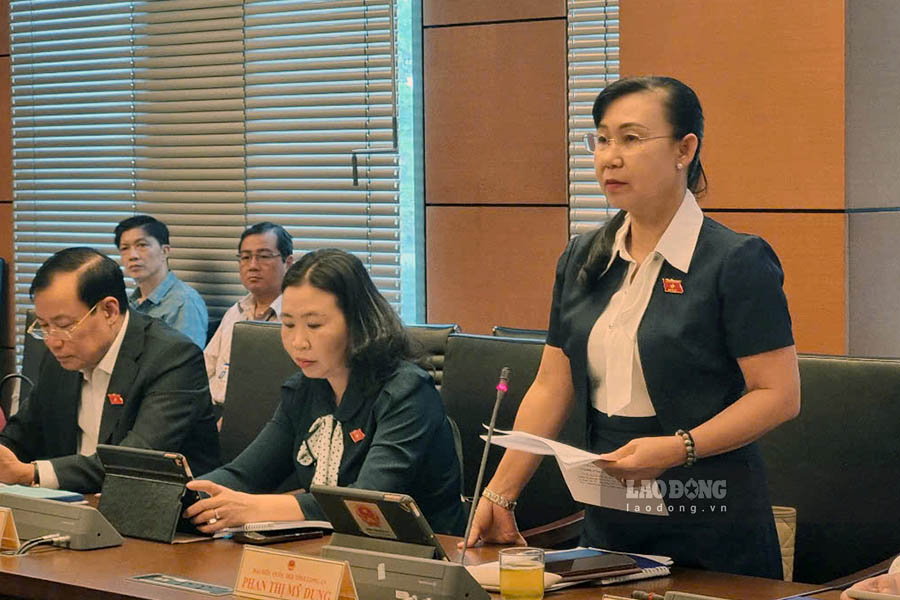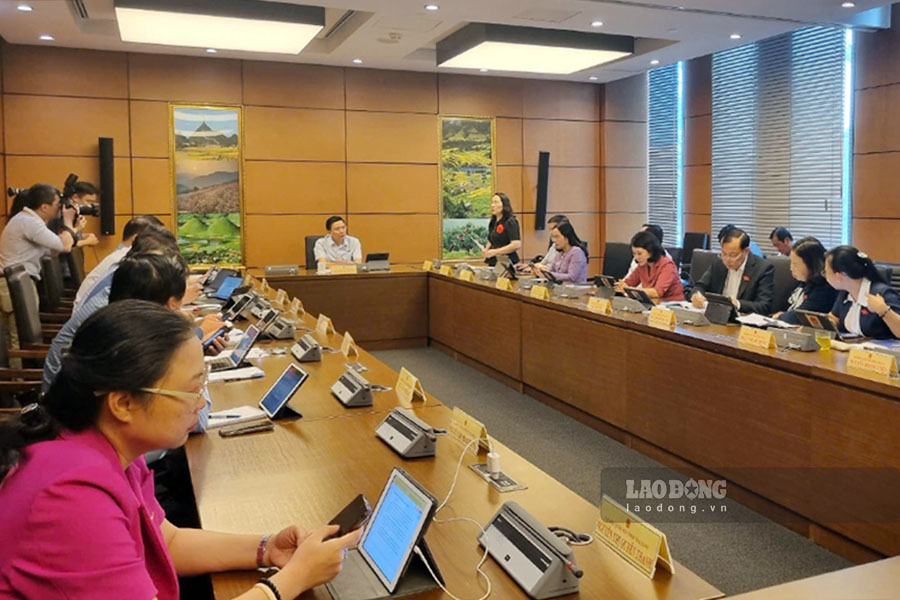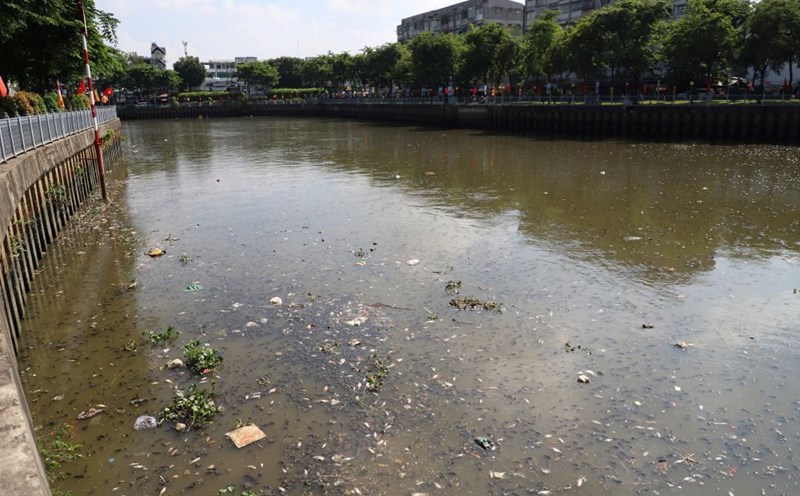On the afternoon of May 6, the National Assembly held a group discussion on the contents of the draft Law on Science, Technology and Innovation; Law on Product and Commodity Quality.
Clear boundaries between accepted risks and law violations are needed
The draft Law on Science, Technology and Innovation supplements the regulation that research institutions are autonomous, self-responsible for implementing research activities, building the apparatus, spending according to the spending mechanism...
If a research project does not achieve the expected results, the research organization will not be responsible for compensation as before and will be exempted from civil liability for damages caused to the State during the research.
Regarding the above issue, many National Assembly deputies expressed their support and said that accepting risks in scientific, technological and innovation activities has created a legal corridor, supported the spirit of creativity and experimentation, and overcome many major bottlenecks in the current policy on scientific and technological research.
Delegate Phan Thi My Dung - Member of the National Assembly of Long An province expressed the view that up to now, the biggest bottleneck in research activities is fear of responsibility.
"When introducing the content of accepting risks in scientific and technological activities in the draft Law, the bottleneck was overcome and the creative spirit of scientists and researchers was promoted," delegate Phan Thi My Dung shared.

However, delegate My Dung also emphasized that there needs to be a specific line between accepted risks and illegal acts. Especially for risks related to ethics, environment, and humanity.
"For example, if the project is approved by a scientific and ethical council, clearly defining the level of risk and preventive measures, it can be considered an accepted risk.
On the contrary, implementing without approval leading to consequences must be considered a violation. This boundary needs to be clarified to avoid taking advantage of it," delegate Phan Thi My Dung commented.
Specific forms of handling violations of scientific integrity
The draft Law on Science, Technology and Innovation mentions the concept of "Scientific integrity".
Accordingly, scientific integrity is understood as compliance with the principles of honesty, transparency, responsibility and fairness in proposing, implementing, announcing and applying results of scientific research, technology development and innovation.
Article 7 of the draft Law stipulates that agencies, funding organizations, host organizations and individuals participating in scientific, technological and innovation activities are responsible for ensuring compliance with the principle of scientific integrity and fully performing professional ethical responsibilities in research.
Behaviors such as forgery, data distortation, plagiarism, financial fraud, concealment of conflicts of interest or acts that distort the nature of research are considered serious violations of scientific integrity.
Violations will be updated on the National Science, Technology and Innovation Information System or the National Science, Technology and Innovation Management Platform...
The National Assembly delegate assessed that this is an important improvement, creating a deterrent and increasing responsibility for individuals and organizations participating in research activities.
However, the draft Law has not specifically mentioned forms of handling violations.

"I propose to specify the forms of handling, such as having to suspend the project, recover funding, publicize violations or prohibit participation in sponsorship projects for a certain period of time," delegate Phan Thi My Dung - National Assembly Delegate of Long An province commented.
At the same time, delegate My Dung also proposed that the disclosure of information on violations should follow clear criteria, and should only be done when there is an official conclusion from the independent assessment council. This helps avoid unnecessary deviations, causing damage to the reputation of individuals and organizations.
At the same time, it is also necessary to establish a mechanism to receive and handle feedback from the public and the research community on violations of scientific integrity. In fact, many scientific topics were published, honored, and even awarded, but were later discovered to have violated regulations such as data cutting, plagiarism, etc.
Delegate Le Thi Song An - Member of the National Assembly of Long An province proposed that the drafting committee of the Law further clarify the management responsibilities of competent authorities regarding scientific integrity and professional ethics.










